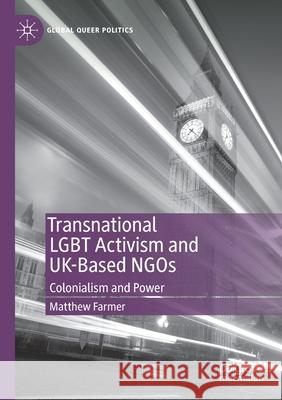Transnational Lgbt Activism and Uk-Based Ngos: Colonialism and Power » książka
topmenu
Transnational Lgbt Activism and Uk-Based Ngos: Colonialism and Power
ISBN-13: 9783030453794 / Angielski / Miękka / 2021 / 267 str.
Transnational Lgbt Activism and Uk-Based Ngos: Colonialism and Power
ISBN-13: 9783030453794 / Angielski / Miękka / 2021 / 267 str.
cena 442,79
(netto: 421,70 VAT: 5%)
Najniższa cena z 30 dni: 424,07
(netto: 421,70 VAT: 5%)
Najniższa cena z 30 dni: 424,07
Termin realizacji zamówienia:
ok. 16-18 dni roboczych.
ok. 16-18 dni roboczych.
Darmowa dostawa!
Kategorie:
Kategorie BISAC:
Wydawca:
Palgrave MacMillan
Seria wydawnicza:
Język:
Angielski
ISBN-13:
9783030453794
Rok wydania:
2021
Wydanie:
2020
Numer serii:
000815597
Ilość stron:
267
Waga:
0.37 kg
Wymiary:
21.01 x 14.81 x 1.63
Oprawa:
Miękka
Wolumenów:
01
Dodatkowe informacje:
Wydanie ilustrowane











